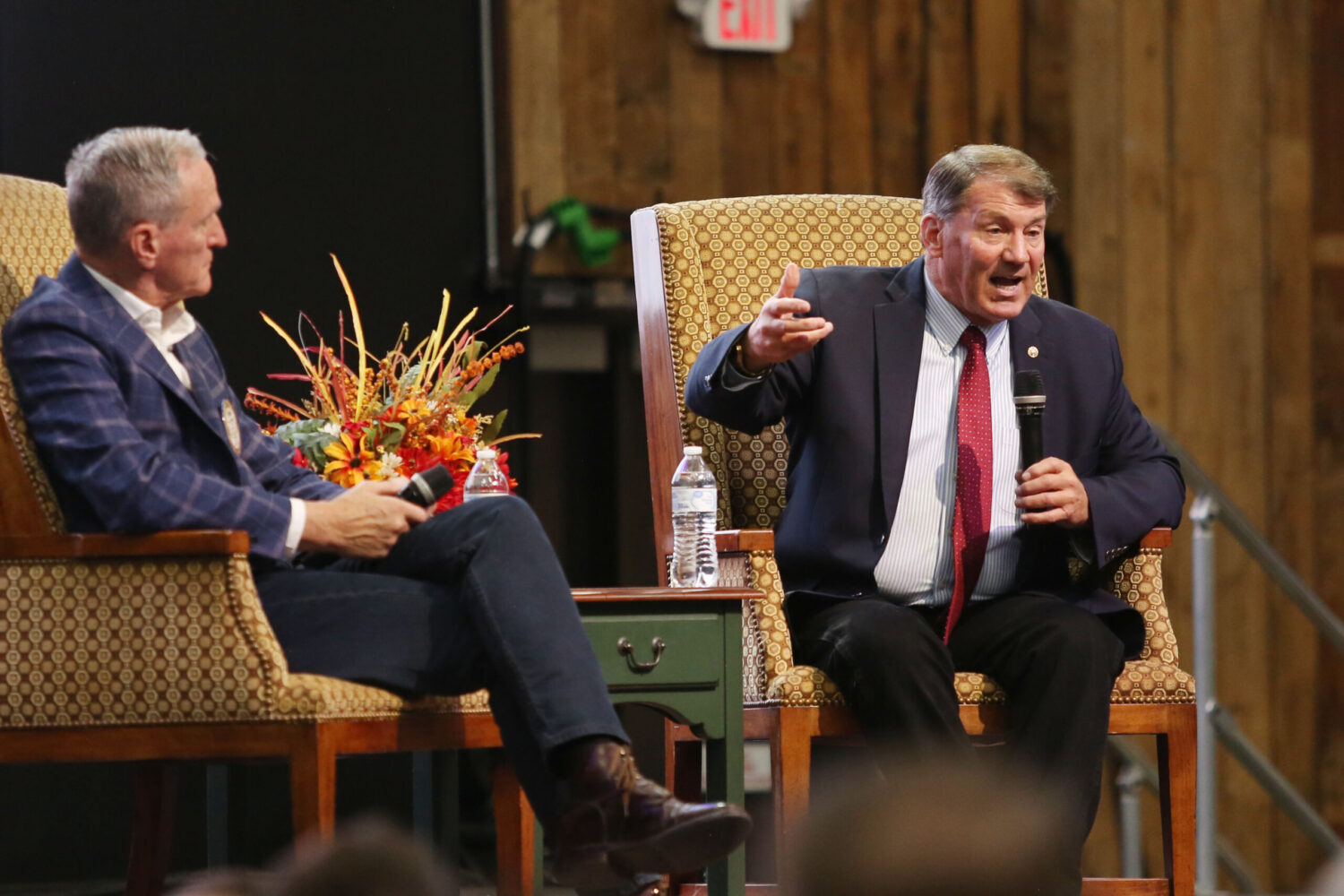
Makenzie Huber/South Dakota Searchlight
U.S. Sen. Mike Rounds, R-South Dakota, is confident that bipartisan legislation to help low-income Native Americans obtain home mortgages on tribal land will win approval from Congress.
The U.S. Department of Agriculture offers low-interest housing loans to low-income rural Americans, often without private mortgage insurance or a down payment. But the department struggled for years to distribute its rural housing loans to Native Americans on tribal trust lands.
Trust lands are held by the federal government for tribes and tribal members, making mortgages on trust land more complex and less appealing to traditional banks.
That’s where Native Community Development Financial Institutions come in. The institutions represent rural reservation and urban Native communities, and are better able to navigate lending on trust land for the USDA program and other housing loans while also investing more time in their communities through financial and homebuyer education.
The USDA expanded its rural housing relending program to include Native institutions in 2018, starting with a pilot program on the Pine Ridge and Cheyenne River reservations. Since then, the program has expanded to 10 states with over $20.1 million loaned to Native organizations.
The bill, introduced by Minnesota’s Democratic Sen. Tina Smith and cosponsored by Rounds, would set aside $50 million annually within the USDA’s relending program for Native financial institutions and homebuyers.
Rounds said Native institutions on Pine Ridge and Cheyenne River made the pilot program a “real success.”
“They knew the right people to go to, they knew how to have that happen,” Rounds told South Dakota Searchlight after a recent appearance at the Downtown Sioux Falls Rotary Club. “And what we found was that once it had occurred there, it was repeatable elsewhere.”
Nikki Gronli, state director of USDA Rural Development, said the bipartisan bill will solidify the program and support her office’s mission to make “thriving, economically sustainable communities.”
“We all know that when it comes to economic development and generational wealth, owning a home is very important,” Gronli said. “Economically, we know over time this builds a stronger community.”
She added some homes purchased through the program are constructed through the Governor’s House program.
Cheyenne River’s Four Bands Community Fund and Pine Ridge’s Mazaska Owescaso Otipi Financial have received a combined $7.1 million from the program and have made a combined total of 24 loans.
“People want to get out of rentals, create assets, have something to pass down,” said Lakota Vogel, executive director of Four Bands.
Vogel wants to buck the stereotype that low homeownership rates on reservations are because of poor credit scores or because community members don’t make enough income to support a mortgage. Even people who who can afford private mortgages struggle to obtain them, she said, because of systemic problems that make it more complex and burdensome to leverage private wealth on trust land.
“There’s been misinformation in the financing world that you can’t collateralize trust land. I’ve seen it written in papers and listened to bankers say it, and it’s just not true,” Vogel said.
While Vogel sees a permanently funded program as a “win-win” for Native communities and the federal government, she said rising housing costs have made it more difficult for the program to help qualifying people.
The legislation awaits action by the Senate Committee on Banking, Housing and Urban Affairs, which includes Rounds and Smith as members.
